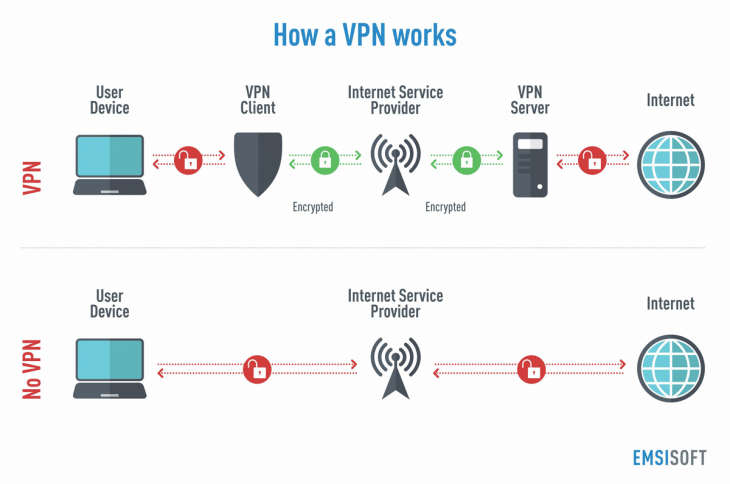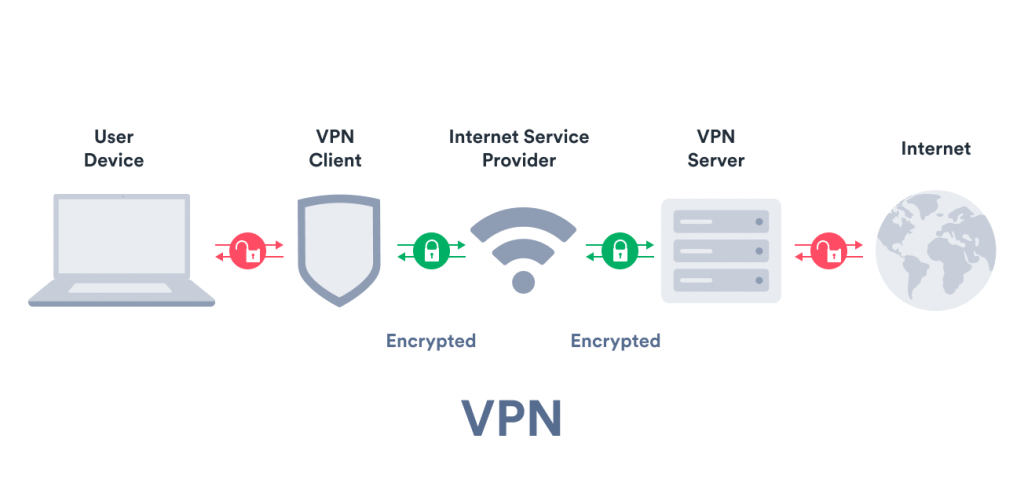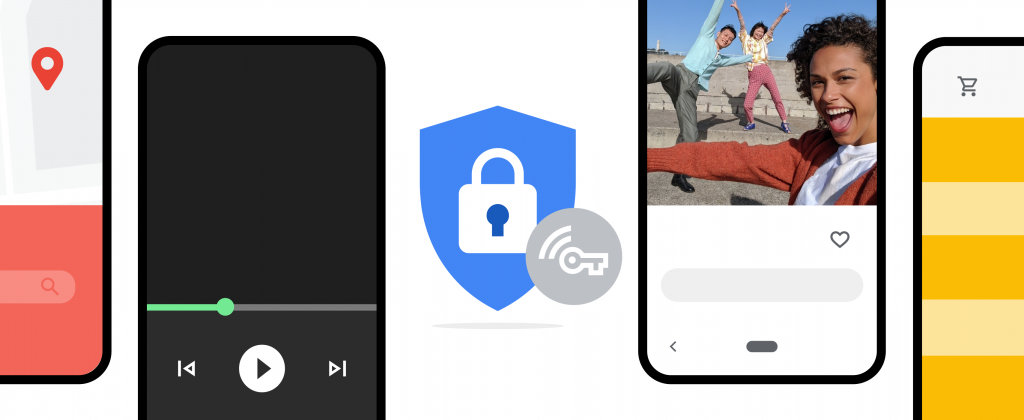If you’re concerned about your online privacy, you’re probably considering getting a VPN. You may already have one.
Short for Virtual Private Network, they protect your data with encrypted tunnels while making your online activities anonymous and virtually untraceable.
These tools are becoming increasingly popular in the current environment of increased surveillance and intrusive regulations worldwide. However, there are many other VPN apps that you can benefit from.
In addition to security, many users can access geo-restricted content from anywhere in the world using one of the best VPNs for streaming. These VPNs are also known for their secure torrenting and are also used by gamers.
Interested in learning more about VPNs? These are just seven benefits you might not have thought about.
1. Securing online anonymity
Location, device IP address type, device type, and browsing history are just some of the digital footprints you leave behind when you surf the web. Online security is protected by anonymity. Anyone can read your fingerprints if your identity is revealed.
A VPN works by hiding your IP address by redirecting your connection to another server. Your online activities are virtually private and untraceable. Additionally, the most private VPNs offer strict no-logging policies to ensure that sensitive data is never stored, even by your service provider.
You are anonymous when browsing the Internet and protected when downloading torrents or other files. A VPN for torrenting can improve your overall downloading experience with connection speed and in many cases unlimited bandwidth.
2. Safely connecting to public Wi-Fi
Cafes, pubs, libraries, airports, hotels, schools, airports have free Wi-Fi access in almost every public space these days. While these wireless hotspots are extremely useful – think of all the digital nomads who can work remotely from anywhere – network traffic and your personal data are easily accessible.
Unlike your home router, which is protected by encryption protocols or passwords such as WPA2, public Wi-Fi networks are open to anyone. Sometimes you don’t even need to use a shared password to access the network.
That’s why it’s a good idea to use a VPN when connecting to a public Wi-Fi network. It protects your data and hides your identity as we have already discussed. Even if someone eavesdrops on your activity, it is impossible to identify you.
3. Protecting your data
A VPN can hide both your IP address and your location. Both proxy and VPN are possible. It encrypts all your personal information in encrypted tunnels so that no authorities or hackers can access or exploit them.
Each encryption protocol explains how the service connects to the server and the methods used to encrypt and transmit data. There are several ways to choose the best service provider.
OpenVPN and WireGuard, a relative newcomer to encryption, are considered the gold standard. Other companies like ExpressVPN and NordVPN have even developed their own versions based on the same technology.
4. Boosting your online freedom

Not only is it safe, but it can also be used to hide your location online. In some cases, this is the only way to access certain content and sites.
Think about what you would do if you moved to a country with strict internet laws, such as Russia, Iran or the Great Firewall of China. VPNs are the only way to bypass online censorship, access blocked websites and apps.
The same principle applies to a much more widespread use, watching TV series and movies on the Internet. All the major streaming platforms have geo-restrictions on their content, so if you live in the UK, you won’t be able to access the US catalog or change the situation. Tired of missing your favorite BBC shows while on holiday? With one of the most popular BBC iPlayer VPNs, you can access all available content no matter where you are in the world.
5. Avoiding ISP and apps throttling

Throttling is a technique used by your Internet Service Provider (ISP) to intentionally limit your Internet speed or bandwidth. This is done without you being aware of it. This can happen when you consume some of your data or use certain websites.
A VPN can help as it can prevent data capping. This is because your ISP can’t see how much data you’re using. A VPN service is the perfect tool for you if you run a business and/or need access to large amounts of data.
Bandwidth throttling refers to a situation where your internet speed is intentionally reduced. This mainly happens when you engage in certain internet activities such as torrenting. A VPN service encrypts your data so your ISP or wireless network can’t see what you’re doing online.
6. Preventing price discriminations
The price of services and products may vary depending on where you live. Price discrimination occurs in practice depending on the number of times you shop on that platform or your online shopping habits.
This can be avoided by using a VPN that hides your browsing habits and shopping preferences. This is especially useful for certain types of products.
Let’s say you want to buy a cheap plane ticket. There are reports that you can connect to a VPN server located in another country and compare prices with those in your country of residence.
Similar principles apply to reducing long-distance telephone costs. Simply connect to a local server for your receiver and enjoy domestic phone charges
Online shopping means you can get everything you need without leaving your home in just a few clicks. While this can save you time and in some cases even money, your security is once again at risk.
Your personal information, such as your name, address and bank details, is disclosed when you conduct online transactions. Online stores may store and sell your data to third parties for commercial purposes. Hackers can access them to steal your cash. This can sometimes lead to identity theft.
Using a VPN (along with anti-virus software) is then the best option for safe online shopping and ensuring that your information cannot be exploited for any of these reasons. You can also hide your location to access local websites that are convenient for you to shop.
Chiara is a multimedia journalist with an eye on cybersecurity issues and trends. He is a staff writer for Future, with a particular focus on VPNs. He mainly writes TechRadar Tom’s Guide, T3 articles and news on data privacy, web censorship and digital rights. He is enthusiastic about digital storytelling in all its forms and enjoys photography, podcasting, video editing and podcasting. He was born in Milan, Italy and lives in Bristol, UK as of 2018.
Chiara is a multimedia journalist with an eye for cybersecurity issues and trends. He is a staff writer for the future, focusing on VPNs. He writes features and news for TechRadar and Tom’s Guide on digital rights and data privacy, as well as online censorship and digital rights. Passionate about digital storytelling in all its forms, he also enjoys photography, video making and podcasting. He is originally from Milan, Italy but has been based in Bristol, UK since 2018.
The main purpose of a VPN is to hide your online activities. VPNs are typically used to protect against hackers and snooping using public networks, but they can also be useful for hiding your IP address, browsing activity, and personal data on any Wi-Fi network—even at home.
Can my internet provider see my VPN?
Can my ISP see my VPN? When you use a VPN, your ISP cannot identify the content of your Internet traffic or determine where your traffic is going or from. This means that your ISP cannot see what websites you visit or what you do while connected.
What does a VPN do to hide your ISP? VPNs protect all online traffic and effectively hide your browsing history from your ISP. However, this does not mean that your ISP is not aware of your activity. They may be able to determine if you are connected to a VPN and for how long, based on the fact that the encrypted traffic is directed to an IP address belonging to the VPN server.
Can internet provider see my history with a VPN?
Your ISP can’t see your history when you use a VPN. This is because using a VPN VPN creates a secure encrypted connection between your device and the VPN server. Your ISP cannot decrypt the traffic you send, even if it is routed through their servers.
How do I stop my parents from seeing my search history?
Using incognito mode!
- To enter private browsing mode Press Ctrl Shift in Internet Explorer to browse in private mode. To exit incognito mode, close the window in which incognito mode is enabled.
- Firefox allows you to use the key combination Ctrl Shift P. …
- In Google Chrome, you can press Ctrl + Shift + N to enter incognito mode.
Does VPN hide porn from parents?
If your VPN is working properly, your IP address will be hidden, but you’ll need other software to handle cookies. A VPN does not make you invisible to other porn websites or other sites. Tracking blockers and other VPNs can make your online experience more private.
What are the side effects of using VPN?
Here is a brief overview of the main disadvantages of VPN. VPN.
- With certain VPNs, your connection may be slower.
- Certain websites block VPN users.
- VPNs are considered illegal or untrustworthy in certain countries.
- It’s hard to know how securely a VPN is protecting your data.
- Certain VPNs sell browsing information to third-party companies.
What are the potential risks of using VPNs for network security? VPNs are not secure as they expose entire networks to threats such as malware, DDoS attacks and spoofing attacks. If an attacker tries to breach it with an infected device, the entire network could be wiped out.
Are VPNs safe enough?
VPNs and other remote access software are so widespread that many companies believe they’ve checked all the security boxes and are just as secure as they were 10 or more years ago. Security experts have proven that VPNs are not enough to keep an organization safe.
Can a VPN be hacked?
Their success is due to a combination of computer power, deception and court orders. While VPNs can be hacked, hacking them is extremely difficult. Plus, you’re much more likely to get hacked even without a VPN than with one.
Are you completely safe with a VPN?
A reliable virtual private network (VPN) helps you surf the Internet safely. VPN security protects you from your IP address and protects your online history, and is increasingly used to block snooping by government agencies. VPNs cannot always guarantee your security.
What happens when using a VPN?
VPNs hide your IP address and geographic location. When you use a VPN, your Internet traffic is redirected through an external server, and your online activities can only be traced back to the VPN server’s IP address, but no longer to your IP address or to you.
Is it better to have VPN on or off?
VPNs offer the most secure online security. It’s important to keep your VPN on to protect yourself from data leaks and intrusive spies over public Wi-Fi, such as ISPs and advertisers. So always keep your VPN on.
What happens when you use VPN?
VPN connections provide a secure connection between your computer and the Internet. All data traffic is encrypted through the VPN tunnel. It hides your IP address when you connect to the Internet, making its location invisible to anyone. External attacks are also protected with a VPN connection.
Is there a downside to using a VPN?
VPN service also has its drawbacks. Performance, speed and price. The best encryption always comes with an element of slowness. Due to the processing power required for encryption, a VPN service may slow down your Internet connection.
Do you believe the positives of VPNs outweigh the negatives? The Bottom Line While certain VPNs have their drawbacks, it’s safe to say that the pros outweigh the cons. In addition to being able to access the content you want at any time, you can rest assured that your personal data will remain private.
Why you shouldn’t use a VPN?
A VPN may not be a good idea for downloading or gaming as it can slow down your connection speed. Another reason to stop a VPN is if you only want access to content available in your region.
Why you shouldn’t use a free VPN?
Free VPNs are not the best option if you want to be more secure online. While you might save a few bucks each month, the risks to your security and privacy aren’t worth it. A free VPN can end up costing you more than a paid subscription.
Can you use VPN and Wi-Fi at the same time?
This means that if the VPN server is configured to allow Internet connection (by setting a default gateway for your computer) and you can also connect to the Internet through a remote network Internet connection, otherwise, if the VPN server is not configured to allow Internet connection, you will not be able to connect to the Internet to use …
Do I connect to WiFi or VPN first? It is good practice to use a VPN when connecting to public Wi-Fi networks. But in the scenarios I’ve observed, you connect to the network first and then switch to the VPN. In this case, there is a period of time during which your traffic is going through an insecure connection and you are at risk.
Can you be tracked if you use VPN?
You can still be tracked if you use an inferior VPN. A quality VPN protects data and hides your IP address by routing your data through a VPN server. If someone tries to monitor your internet activity, all they will see is the IP address of the VPN server, and nothing but gibberish.
Can a VPN stop tracking? Using a VPN While a VPN won’t stop spyware from being downloaded to your device, it will hide your location and prevent your online behavior from being tracked and tracked. The best VPNs also come with anti-malware and ad-blocking software, like CyberGhost.
Can VPNs be traced?
Your web traffic and IP will no longer be tracked. This can be tracked using a lower VPN.
Do ISP care if you use a VPN?
When you connect to a VPN, you instruct it to send a request to the VPN server. The VPN server then intercepts the request and the ISP doesn’t know where it goes. This is how the ISP sees the IP address of the VPN server when using a VPN.
How safe is VPN from government?
In most cases, the government cannot determine if you are using a VPN. They can’t see what you’re doing online, your web browsing history, or your real IP address. Your VPN protects all data.
How safe is VPN from government?
In most cases, the government cannot detect that you are using a VPN. They cannot determine what you do online, nor your web history, or even your real IP address. Your VPN encrypts all of this data.
Why you shouldn’t use a VPN?
A VPN can be a bad choice for gaming or downloading as it can slow down your connection. Another reason to stop a VPN is if you want to access content that is only available in your region.
How secure is a VPN from the government?
However, this is not a big deal if using a VPN is legal in your country of residence. Remember that in almost all cases the government will only see that you are using a VPN. They cannot determine what you do on the Internet, nor your web history, or even your real IP address. Your VPN encrypts all of this information.
Do ISP care if you use a VPN?
You tell the VPN server to send a request when you connect to it. The VPN server then intercepts the packet and the ISP doesn’t know where it goes. Finally, when using a VPN, the ISP is aware of this information: the IP address of the VPN server.
Sources :
